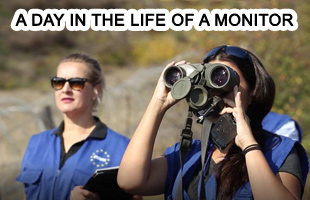A roundtable discussion, bringing together Georgian women’s organisations and Mission members working on gender issues, was hosted by EUMM on 15 April. Deputy Head of Mission, Erik Hoeeg welcomed participants, stressing the importance placed on engagement with women’s NGOs.
The Mission Gender Adviser, Stacy Ziebell kicked off the roundtable, entitled Strengthening Civil Society’s Participation in EUMM’s Work, which turned out to be a lively discussion and an interactive brainstorming session on how the Mission can engage more closely and more creatively with women’s organisations, to better implement its mandate.
Stacy explained how the Mission integrates gender in its work in accordance with the UN Security Council Resolutions on Women, Peace and Security. The Gender Focal Point Network within the Mission was raised as an example of best practice and the presence of seven Gender Focal Points enriched the dialogue. There was also an interesting discussion on the importance of using mixed-sex patrols along the ABL, both by the Mission and by the Georgian Police. Using these mixed patrols would give women and children in particular, a greater sense of security along the ABL.
The second session, facilitated by the Deputy Head of Analytical Reporting & Outreach, Alina Belskaya, focused purely on the Mission’s engagement with civil society. Representatives of women’s organisations highlighted that EUMM patrols bring hope and safety when they are present, and they appreciated the Mission’s regular presence. Attendees raised the need for more work to be done to explain the Mission’s mandate, as for many interlocutors, the mandate still remains unclear. It is important to explain what the Mission does so as not to unduly raise expectations.
The NGO participants also stressed two reasons why it is important to share information: firstly, to help civil society address specific cases; and secondly because EUMM often visits areas where civil society is not present and government visits are also scarce, hence EUMM is in the unique position to provide information to NGOs to enable them to direct assistance where needed.
During the third session, facilitated by Ms. Julia Karaishvili, from the NGO IDP Women Association "Consent", participants called for more community engagement in different forms, including exchange of expertise with local communities. This was followed by discussion on how to mainstream the women, peace and security agenda into all areas of civil society; not only within women’s organisations. Participants stressed the need to strengthen civil society in the regions as well as the need for closer work with the media to promote a better understanding of UNSCR 1325 and subsequent Resolutions. Finally, it was highlighted that while many issues can be resolved with local resources, the Missions presence helps keep local authorities accountable.
Overall the roundtable was successful and the Mission hopes to hold similar events in the future, where Mission staff will be able to provide feedback to NGOs on actions taken following the points raised above.
The Mission Gender Adviser, Stacy Ziebell kicked off the roundtable, entitled Strengthening Civil Society’s Participation in EUMM’s Work, which turned out to be a lively discussion and an interactive brainstorming session on how the Mission can engage more closely and more creatively with women’s organisations, to better implement its mandate.
Stacy explained how the Mission integrates gender in its work in accordance with the UN Security Council Resolutions on Women, Peace and Security. The Gender Focal Point Network within the Mission was raised as an example of best practice and the presence of seven Gender Focal Points enriched the dialogue. There was also an interesting discussion on the importance of using mixed-sex patrols along the ABL, both by the Mission and by the Georgian Police. Using these mixed patrols would give women and children in particular, a greater sense of security along the ABL.
The second session, facilitated by the Deputy Head of Analytical Reporting & Outreach, Alina Belskaya, focused purely on the Mission’s engagement with civil society. Representatives of women’s organisations highlighted that EUMM patrols bring hope and safety when they are present, and they appreciated the Mission’s regular presence. Attendees raised the need for more work to be done to explain the Mission’s mandate, as for many interlocutors, the mandate still remains unclear. It is important to explain what the Mission does so as not to unduly raise expectations.
The NGO participants also stressed two reasons why it is important to share information: firstly, to help civil society address specific cases; and secondly because EUMM often visits areas where civil society is not present and government visits are also scarce, hence EUMM is in the unique position to provide information to NGOs to enable them to direct assistance where needed.
During the third session, facilitated by Ms. Julia Karaishvili, from the NGO IDP Women Association "Consent", participants called for more community engagement in different forms, including exchange of expertise with local communities. This was followed by discussion on how to mainstream the women, peace and security agenda into all areas of civil society; not only within women’s organisations. Participants stressed the need to strengthen civil society in the regions as well as the need for closer work with the media to promote a better understanding of UNSCR 1325 and subsequent Resolutions. Finally, it was highlighted that while many issues can be resolved with local resources, the Missions presence helps keep local authorities accountable.
Overall the roundtable was successful and the Mission hopes to hold similar events in the future, where Mission staff will be able to provide feedback to NGOs on actions taken following the points raised above.


